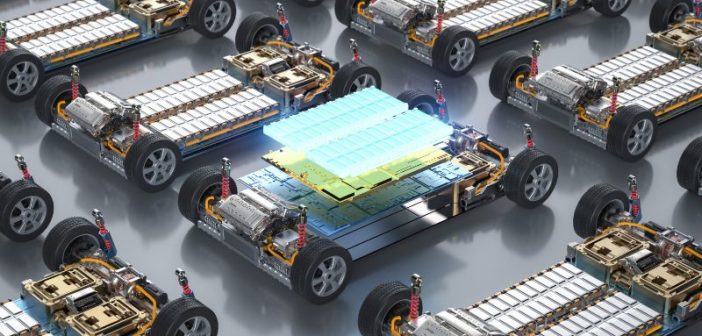The global electric vehicle (EV) market experienced a significant surge, with 10 million units sold in 2022, and a projected 35% growth by the end of the current year. This rapid adoption of EVs, coupled with the increased production of lithium-ion (li-ion) batteries, has raised valid safety concerns. The li-ion batteries that drive EVs have the potential to trigger hazardous “thermal runaway” situations, resulting in severe and long-lasting electrical fires. Furthermore, workers involved in battery assembly face various risks, including hand injuries, exposure to chemical substances, and the possibility of electrocution. Therefore, ensuring a strong focus on safety is of paramount importance during this burgeoning phase of the EV industry.
To address safety concerns across the spectrum of people involved in EV manufacturing, transport, and use—from drivers to EV plant workers to first responders and others—Honeywell (Nasdaq: HON) has created a number of ready-now solutions to not only protect individuals and assets, but also to help detect the risk of battery fires sooner.
“Electric vehicles are pivotal for a sustainable future of transportation,” said Victor Verissimo, general manager of electrification for Honeywell Sensing and Safety Technologies. “However, sustainability can’t compromise safety. Honeywell’s portfolio of solutions helps make the production and operation of EVs safer for all involved, helping to play a crucial role in making sustainable travel a reality.”
Safety for EV Operators
Honeywell’s battery safety sensors, when integrated into EV battery packs, detect thermal runaway risks enabling the warning of passengers and allowing EV manufacturers to meet international battery fire safety standards. Through a strategic alliance with Nexceris, developer of Li-ion Tamer lithium-ion gas detection solutions, Honeywell is developing sensors to detect earlier thermal runaway indicators in EV batteries. This early intervention can help avoid costly property damage or worse, injury to drivers.
Safety in Gigafactories
The demand for EVs is giving rise to more gigafactories—massive battery and electric vehicle factories—and more manufacturing jobs. This battery assembly process poses risks of hand and eye injuries, exposure to toxic and flammable chemicals, electrocution, and “arc flash,” when electric current leaves its intended path and travels through the air or to the ground.
To keep the workers who are accelerating the future of transportation safe and help mitigate the inherent risks associated with lithium-ion battery production, Honeywell offers comprehensive personal protective equipment (PPE), electrical safety gear and gas detection technology for high-risk areas like electrode mixing, coating, drying, and cell finishing.
Safety for First Responders
While sensors can allow for early detection of malfunctions in li-ion batteries, they cannot yet prevent them altogether. In scenarios when a li-ion battery fire does occur, first-responders must be properly equipped to fight these fast-burning, incredibly hot flames. Honeywell provides fire and emergency services departments the gear needed to effectively combat the dangerous conditions brought on by li-ion battery fires.
For more information on how Honeywell is driving a safe electrification transition, visit the website HERE.
About Honeywell Safety and Productivity Solutions
Honeywell Safety and Productivity Solutions (SPS) provides products, software and connected solutions that improve productivity, workplace safety concerns and asset performance for our customers across the globe. We deliver on this promise through industry-leading mobile devices, software, cloud technology and automation solutions, the broadest range of personal protective equipment and gas detection technology, and custom-engineered sensors, switches and controls. For more information, please visit the website HERE.
Related News:
XCharge North America Expanding America’s EV Charging Accessibility
J+ BOOSTER 2 Available on Walmart.com for Portable EV Charging
[1] IEA, Demand for electric cars is booming, with sales expected to leap 35% this year after a record-breaking 2022, April 26, 2023 [Accessed August 7, 2023]

